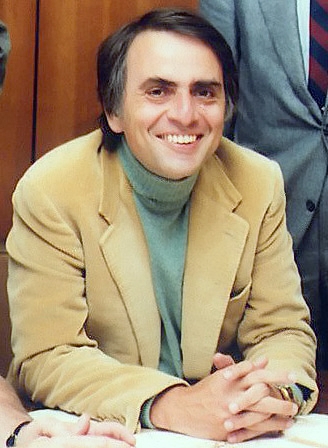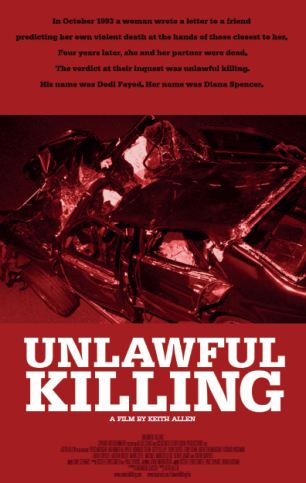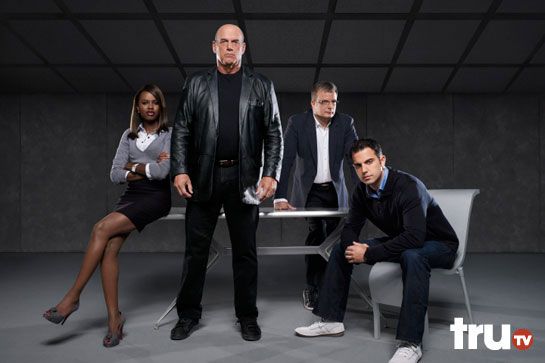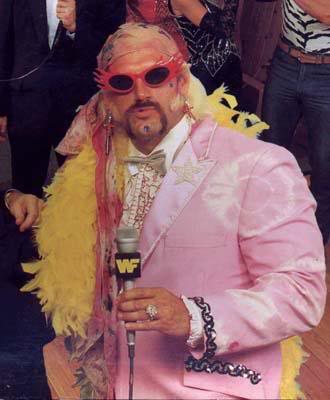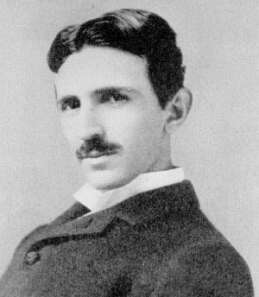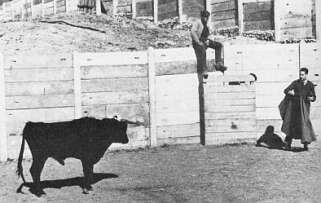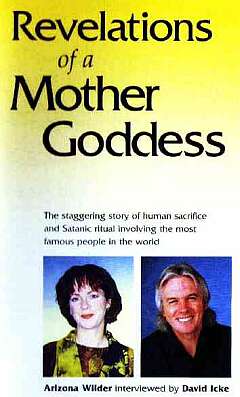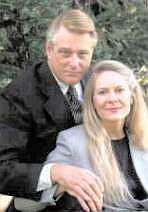Kindle Surprise: The Demon-Haunted World, by Carl Sagan
“The question, as always, is how good is the evidence? The burden of proof surely rests on the shoulders of those who advance such claims. Revealingly, some proponents hold that scepticism is a liability, that true science is inquiry without scepticism. They are perhaps halfway there. But halfway doesn’t do it. “
It’s no secret I enjoy conspiracies, and conspiracy theories. This is mostly for the entertainment value: the world would be a much more interesting place if those in power were, as David Icke has suggested, actually shape-shifting lizards. But a good general rule is, the bigger a conspiracy has to be, the less likely it is to be true. Another useful one is Hanlon’s razor: Never attribute to malice that which is adequately explained by stupidity. So was the government behind 9/11? I doubt it. Should the government have known about it? Quite probably: the dots were there, they just weren’t connected by anyone in possession of all the data. Did America shamelessly exploit it afterward for an entirely unconnected foreign policy agenda, specifically, the invasion of Iraq? Oh, hell, yes. This doesn’t require a conspiracy, just standard political opportunism.
On Reddit, I’ve been amused and irritated in about equal amounts by the /r/conspiracy forum there, whose contents run the gamut from entirely reasonable speculation through to batshit crazy, with a copious helping of anti-Semitism (thinly disguised as anti-“Zionism”) and a relentless belief that every thing is a “false flag” – including, in an Inception-style piece of circular thinking, some who believe the anti-Semitic posts are false flags, designed to discredit /r/conspiracy. My particular bete noire are those who believe the Sandy Hook massacre was not just a false flag, but never happened at all. Literally, nobody died: it was a grand piece of theater designed to… Well, no-one has come up with an adequate motive: the most commonly mentioned one, to promote gun-control, conveniently forget that not one piece of federal legislation subsequently became law.
The evidence for this conclusion is wafer-thin, depending entirely on a conspiratorial interpretation of events with other possible explanations. For instance, a property database containing $0 transactions for homes in the area, has been cited as proof of a payoff to participants. But the alternative, is that these numbers are simply a place-holder – and the same database shows similar $0 for houses in other towns as well. Or one of the parents, Robbie Parker, who doesn’t behave at a press-conference the way the hoax proponents think he should. Me, I’ve never sent a child off to school and had them gunned down before lunch: I’m absolutely not going to tell anyone how they “should” behave under such a circumstance. Anything from catatonia to pure, undiluted rage would seem quite plausible to me.
What does all this have to do with Carl Sagan, best known for the original Cosmos series? Before I get to that, I did have the option to read his most well-known work, but I opted to pass, since the TV series had a tendency to send me off to sleep. Not that it was boring: just that it takes me back to being a 13-year-old, allowed to stay up late to watch the show. I rarely made it to the end, since his voice, pleasantly intoning “bill-yuns and bill-yuns”, had about the same soporific effect on me as mainlining a bottle of cough syrup. So, I opted for this one instead – though just to be safe, read it on my phone while doing laps of the courtyard at work on my breaks. Unconsciousness was successfully staved off. I can do no better than the Wikipedia summary: the book “aims to explain the scientific method to laypeople, and to encourage people to learn critical or skeptical thinking. It explains methods to help distinguish between ideas that are considered valid science, and ideas that can be considered pseudoscience. Sagan states that when new ideas are offered for consideration, they should be tested by means of skeptical thinking, and should stand up to rigorous questioning.”
These are skills which are, in general, sadly lacking in /r/conspiracy. While there is skepticism, it’s a one-way street, that’s applied only to mainstream news sources where the reported information doesn’t fit the agenda. Now, it’s certainly wise to think about the agenda behind the reporting of FOX News or CNN. But it’s completely idiotic to think that alternative news sources have any less of an agenda, or don’t spin things every bit as much. There’s always the “want to hear both sides, because the truth is in the middle” argument – but that doesn’t apply to facts. If one source tells you Arsenal won the FA Cup and another says it was Manchester United, that doesn’t mean the final score was a draw. The other main problem is letting the theory drive your investigation and interpretation of the data. For instance, Sandy Hook hoax proponents wonder why we didn’t see any surveillance footage of Adam Lanza, in the way we saw the Columbine killers, hinting darkly that it’s because the story is made up. But the truth is, there were no surveillance cameras in Sandy Hook elementary. They’re demanding to see something that doesn’t exist.
The scientific method involves examining all the data, and coming up with something which then explains them, as completely as possible – with the caveat here that no event, subsequently described and interpreted by humans, will ever be perfectly without inconsistencies of detail. At Sandy Hook, the simplest, most elegant theory is that a mentally disturbed individual with access to lethal weaponry, used them to commit an almost unthinkable atrocity. Which may be from where the conspiracy theories spring, an attempt to find a less threatening alternative, i.e. “nobody died”, effectively wishing away the idea of 20 first- and second-graders being gunned down in their school. Sadly, that doesn’t make it true, and if you’re going to claim it, you will need to provide an alternative that explains all – not some – of the available evidence, equally as well as the “official” story. That just hasn’t happen. I’ve yet to hear any hypothesis which provides detail on how, why and by who the hoax, of necessity involving thousands of people, was carried out.
Sagan particularly speaks to this in a chapter entitled The dragon in my garage, in which he discusses a hypothetical claim about a fire-breathing creature, that’s impossible to disprove. You can’t see it? It’s invisible. You can’t feel the heat? The fire produced is heatless. It sounds like more than a few conspiracy theories, which are equally hard to nail down. We see this at Sandy Hook, with the allegation that there were no death certificates. When one of the parents released the certificate, it was then claimed, on dubious grounds, to be a forgery. [Again, one way scepticism: anything countering the mindset is scrutinized in painstaking detail; anything supporting it is typically accepted without question] It’s a continual shifting of the goalposts: you dispose of one claim, and another will simply get wheeled out to replace it. As Sagan says, “If there’s no way to disprove my contention, no conceivable experiment that would count against it, what does it mean to say that my dragon exists? Your inability to invalidate my hypothesis is not at all the same thing as proving it true.”
I don’t agree with Sagan in some of his more socially-oriented opinions here – when you no longer have a fully-informed electorate, democracy becomes much more part of the problem, rather than a solution. And that’s why I do agree with him about the vita importance of education, and in particular, teaching critical thinking skills. Telling children 2+2=4 is all very well, but what happens when they then encounter 2+3? Giving them the ability to analyze data and solve problems is much better than the rote learning of facts. We should expect citizens to question authority, where the evidence is there to do so, and it’s part of science’s duty to do exactly that. Nicolaus Copernicus, for example, challenged the widely-accepted and Church supported notion that the sun revolved around the Earth in the 16th century, after he realized the data didn’t support it. But dogmatic scepticism is just as bad as dogmatic belief. Yes, the gumment will lie to you. But they don’t do so all the time – or even most of it, because they know it’s the truth that makes the lies plausible. Using the tools in what Sagan politely calls his “baloney detection kit” will help you separate the two.
It would certainly help many people, who mindlessly repost the most blatantly false shit on their Facebook wall, without a semblance of critical thought, or even basic Googling. As Mark Twain once said, “A lie can travel half way around the world while the truth is putting on its shoes.” Oh, hang on: that wasn’t Twain at all. I think for most people, an increase in scepticism would likely help, and that’s why, in the end, Sagan’s approach perhaps has more common with /r/conspiracy than it would initially appear, even if the latter’s approach to scepticism is a half-baked one.
“The business of scepticism is to be dangerous. Scepticism challenges established institutions. If we teach everybody, including, say, high school students, habits of sceptical thought, they will probably not restrict their scepticism to UFOs, aspirin commercials and 35,000-year-old channellees. Maybe they’ll start asking awkward questions about economic, or social, or political, or religious institutions. Perhaps they’ll challenge the opinions of those in power. Then where would we be?”
